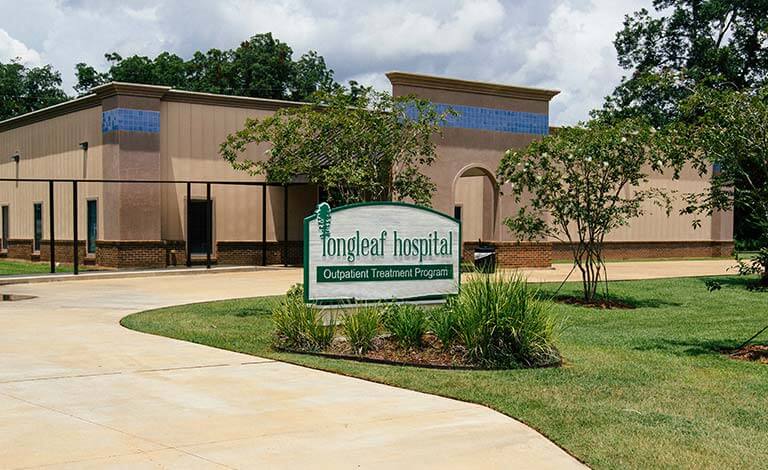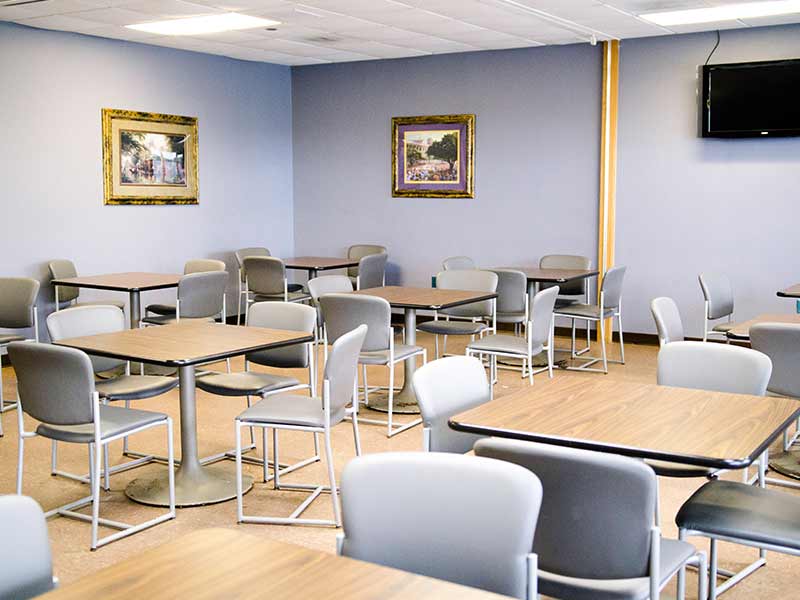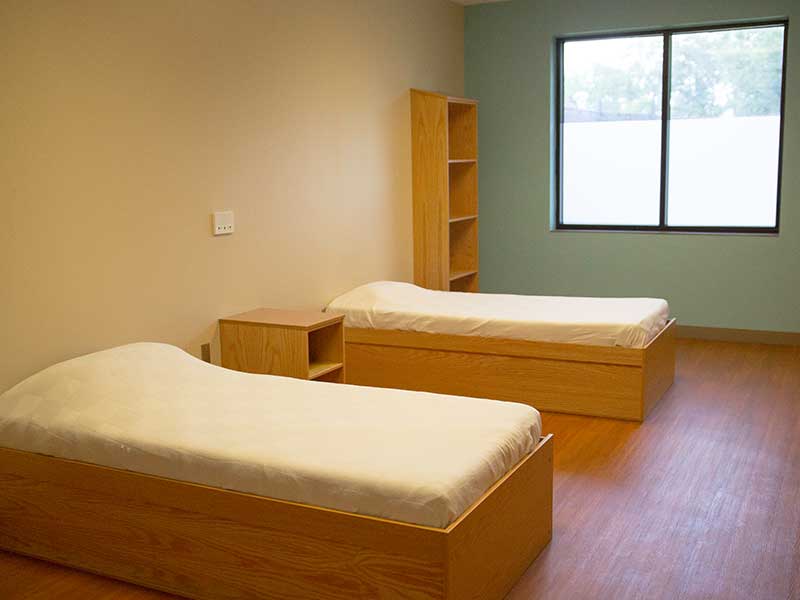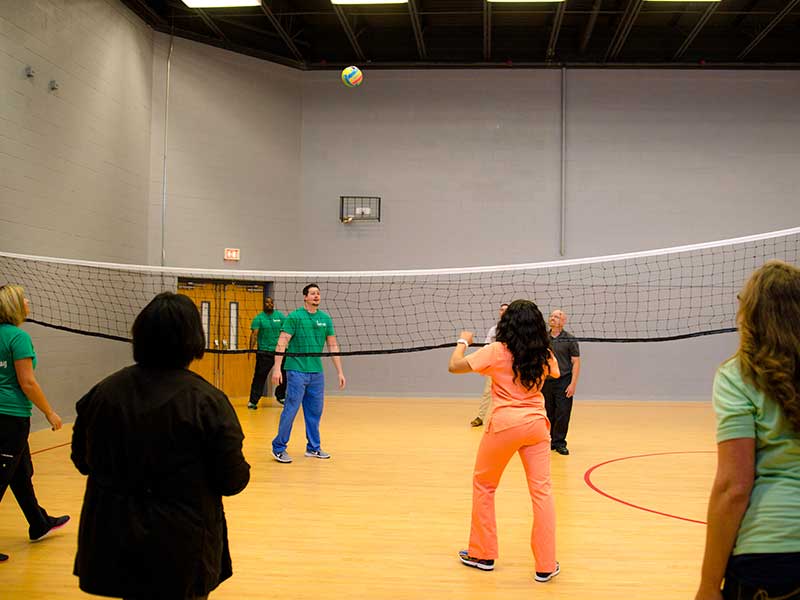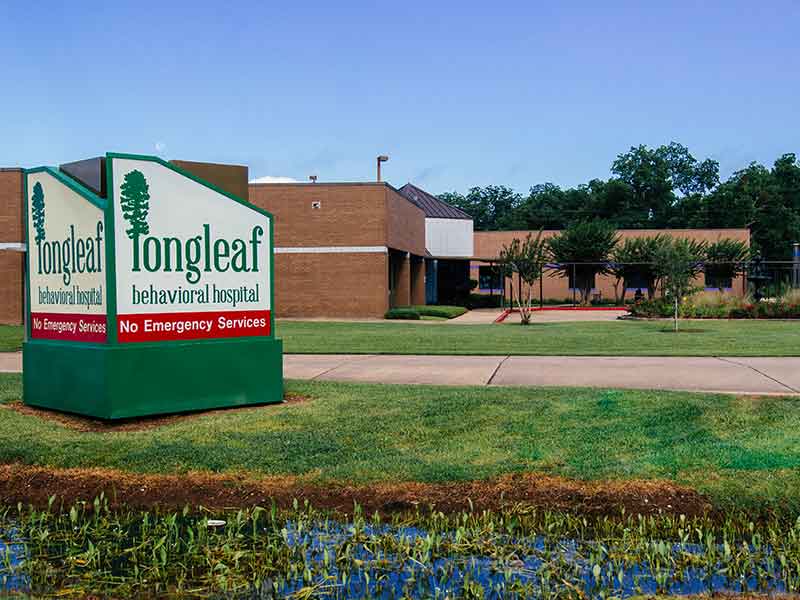Our commitment to comprehensive care for self-harm means that we are prepared to provide you with the type, level, duration, and intensity of services that will best meet your needs.
Self-Harm Treatment
Learn more about self-harm treatment at Longleaf Hospital in Alexandria, LA
Self-harm, which is also referred to as self-injury or self-mutilation, includes a variety of behaviors that involve the intentional infliction of pain and/or damage onto one’s own body. Common examples of self-harm include pinching, cutting, or burning your skin; pulling out your hair; hitting your head against a wall or other hard object; and drinking caustic or otherwise poisonous liquids.
It is important to understand that while self-harm is obviously a dangerous behavior, it is not necessarily evidenced that a person is experiencing suicidal ideation. In many cases, people who engage in self-harm do so as a maladaptive coping technique. In other words, they may inflict pain on themselves in an attempt to exert a modicum of control over their lives, to punish themselves for a failure or perceived shortcoming, or as a means of giving physical presence to psychological torment.
Regardless what internal struggles or external events have pushed a person into self-harm, effective mental health treatment at a hospital, clinic, or another treatment center may be the optimal solution. At a program such as that which is offered at Longleaf Hospital in Alexandria, Louisiana, adolescents and adults who have been engaging in self-harm can receive comprehensive assessments to identify the root causes of their distress, and can complete personalized courses of treatment that will empower them to manage stress and pressure in healthier and more productive ways.
If you or someone in your life has been engaging in self-harm, please know this: You are not alone, help is available, and treatment works. Perhaps even more important, know that you are worth the effort and that you deserve to live a healthy life, free from the compulsion to harm yourself.
How to Help a Loved One
Helping a loved one get treatment for self-harm
Discovering that someone in your life has been engaging in self-harm can be a disconcerting and frightful experience. It is completely understandable to be confused about what your loved one is going through, and concerned about his or her health and safety. However, you should not feel helpless. You can play an essential role in getting your loved one the help that he or she needs. Please consider the following:
As is often the case when confronted with a significant challenge, education is an excellent first step. Visit reputable websites, contact mental health advocacy organizations in your area, and consult with experts to learn more about the signs and symptoms of self-harm, the potential causes of this behavior, and optimal treatment options for individuals who have been harming themselves.
It is also important to talk to your loved one. Express your concern, emphasize your love and support, and be willing to listen. Your loved one’s willingness or refusal to discuss his or her self-harm can guide your efforts to help. If he or she admits that he or she is struggling, and expresses a desire to get help, you will be able to work together to find effective treatment options. If, on the other hand, he or she is hesitant to consider treatment, then you may have to do some additional work to convince him or her how important it is to get help.
Ideally, you should not attempt to take on this challenge on your own. If at all possible, enlist a small group of family members or trusted friends. This group can help to keep your loved one safe, can serve as an informal support group, and can assist with research, contacting programs, and related tasks. Remember that you cannot provide the best support to your loved one if you are neglecting your own needs.
Combining your knowledge of your loved one, your observations of his or her current struggles, and the information about self-harm and treatment that you have collected will put you in an excellent position to identify treatment centers, clinics, or other programs that appear to be best prepared to meet your loved one’s needs. Remember that finding a treatment center isn’t about identifying a perfect place; instead, it is about choosing the center or clinic that is the best fit for your loved one.
Once you have found sources of professional treatment, provide whatever support is necessary to get your loved one into a program. Volunteer to schedule meetings, accompany him or her to appointments, provide transportation, arrange for childcare, and whatever else needs to be done to free him or her up to focus on his or her health.
Depending upon the nature of your loved one’s struggles with self-harm and the presence of any mental health problems or substance use disorders, treatment and recovery may be a long process. While your loved one is in treatment, participate in any family therapy or family support services that are available to you. After treatment, be sure to remain an active and positive source of support for your loved one. Your loved one’s path of recovery may be long, but the effort is worth it, and your presence may make all the difference in the world.
Why Consider Treatment
Why consider treatment for self-harm at Longleaf Hospital in Alexandria, LA
Ongoing untreated self-harm can expose an individual to considerable immediate and long-term danger. The most obvious risk of self-harm involves the direct and indirect physical damage that a person may incur. Cutting, burning, breaking bones, consuming poisons, and other examples of self-harm can lead to significant ongoing physical problems, including but not limited to infections, internal bleeding, and organ damage. People who intentionally injure themselves are likely to avoid medical care in an effort to hide their actions, which means that treatable health problems may turn into complex and considerably more dangerous challenges.
In addition to the physical dangers of self-harm, the secrecy, deception, and isolation that are characteristic of the behavior can also lead to a wide range of negative effects. For example, people who are engaging in self-harm may be experiencing a mental health disorder or struggling to respond in a healthy manner to stress and pressure. Such challenges, without proper care, can undermine a person’s ability to perform to expectation in school or at work, which can lead to academic failure, job loss, unemployment, financial difficulties, and a host of related problems. The pervasive sense of shame and guilt that can accompany self-harm can make it difficult for a person to maintain healthy interpersonal relationships, thus eliminating essential sources of support at a crucial time. If the person turns to substance abuse to numb his or her physical or psychological pain, the possible negative outcomes increase significantly.
When a person who has been engaging in self-harm receives effective treatment at Longleaf Hospital in Alexandria, Louisiana, he or she will be safe from ongoing harm and will have the opportunity to heal from past damage while learning to pursue a healthier future, free from the compulsion to engage in self-harm.
Types of Treatment
Types of self-harm treatment offered at Longleaf Hospital in Alexandria, LA
Located in Alexandria, LA, Longleaf Hospital is the area’s leading provider of individualized psychiatric care for children, adolescents, teens, and adults who are engaging self-harm and struggling with a host of other conditions. Having recently completed a full upgrade of clinic facilities in 2015, Longleaf offers a tranquil setting in which to heal. Our hospital is set amongst a peaceful wooded area but is easily accessible off of highway 28 near the Alexandria Coliseum.
At Longleaf Hospital, we seek to provide the highest level of psychiatric care while treating each child, adolescent, and adult. Our program’s mission is to support long-term success for patients both during treatment at this clinic and after they return home. This is accomplished through the work of our expert team of highly qualified mental health and medical staff who are committed to providing dignity in treatment and to empowering patients to lead healthy, productive lives.
Patients who come to Longleaf may be struggling with a wide variety of psychiatric concerns, and treatment for self-harm will consist of various supports that are tailored to address each patient’s unique strengths and challenges. For adult patients whose struggle with self-harm is accompanied by a substance use disorder, Longleaf is pleased to provide comprehensive care to address chemical dependencies of many types, including addictions to alcohol, benzodiazepines, heroin, opioids, marijuana, PCP, methamphetamines, cocaine, hallucinogenic, synthetics, and more.
Options for treatment at our clinic span the continuum of care, and include several options in order to provide the ideal treatment environment for every patient. We are also proud to offer specialized supports for active and retired military personnel and their dependents.
Upon admission, each patient is thoroughly assessed prior to beginning services at Longleaf, and a personalized plan of care is devised to encourage the most beneficial outcomes possible, no matter what level of care the patient is engaged in.
Short-term acute inpatient care is offered for children and adolescents ages 11-17 and adults ages 18 and above. In this setting, patients can receive a variety of supportive services designed to help them overcome the compulsion to engage in self-harm, including:
- Medically assisted, supervised detoxification programming
- Medical services from nurse practitioners and doctors
- 12-Step based services
- Motivational enhancement therapy (MET)
- Rational emotive behavioral therapy (REBT)
- Cognitive behavioral therapy (CBT)
In addition to the treatment modalities listed above, all children, adolescents, and adults who seek care at Longleaf will have access to the following therapies:
- Medication management: If an individual’s symptoms can be effectively treated with prescription medications, our team can include medication management services into his or her personalized treatment plan. All medication decisions will involve the input and consent of the individual in treatment and/or his or her parents or guardians.
- Individual therapy: Master’s level social workers provide this one-on-one service to allow all patients to process issues from the past and present that have contributed to their self-harm. In this private, confidential setting, individuals can discuss the challenges and successes that arise in treatment, and make a plan for continued success after leaving Longleaf.
- Family therapy: Family therapy is offered twice weekly and is designed to engage a patient’s loved ones in his or her recovery journey, to heal damaged relationships, and to increase the functionality of the family unit.
- Group therapy: All patients at Longleaf will have many opportunities to participate in group therapy. Offered daily, this intervention is used to help patients learn from each other, and to combat the sense of isolation that is common among individuals who are struggling with the compulsion to engage in self-harm. Group discussions are varied but could include topics such as anger management, impulse control, coping skills, and discharge planning.
At Longleaf Hospital, we are proud to have a long history of providing superior service to active duty military members, veterans, and their families. Our military support efforts are led by our medical director, a retired Army colonel who works closely with all military members who heal at Longleaf. We do not have a specialized treatment track for military members, but we ensure that the unique issues and challenges that are experienced by members of the military community are addressed in each patient’s personalized treatment plan, and we place a premium on ensuring that all military-affiliated patients receive the customized care that will best prepare them for long-term success.
In addition to Longleaf Hospital’s acute inpatient care program, the partial hospitalization program (PHP) is another option for support that is available to adult patients age 18 and above. PHP at Longleaf, which typically spans a time period of 2 to 6 weeks, has been proven successful in addressing self-harm. This option is suitable for patients who require a high level of support, but who are able to return to their home environments in the evening.
Programming within this level of care is based on 12-Step ideology, cognitive behavioral therapy (CBT), and motivational interviewing. Medication management is also available within PHP at Longleaf, and patients can meet with a psychiatrist twice per week while in this program. Individual, family and group therapies are also provided, as well as thorough discharge planning.
The least acute option for care at Longleaf Hospital for individuals who have been engaging in self-harm is the intensive outpatient program (IOP). This form of support can be used as a step-down level of care from other programs, or for adults age 18 and above who do not require a higher level of care. Typically lasting 8 to 12 weeks, IOP at Longleaf consists of medication management services and various time-tested therapeutic techniques designed to address the urge to engage in self-harm.
Learn More Today
Get more information about treatment for self-harm
The admissions staff at Longleaf is available to speak with referral sources and prospective patients and their families 24/7. Upon contacting Longleaf, a licensed intake counselor can provide an initial assessment, and answer any questions that you may have about healing at our hospital. The decision to seek care for self-harm may be a difficult one, but the compassionate professional team at Longleaf Hospital in Alexandria, Louisiana, is here to ensure that you find the very best support for yourself or a loved one.




